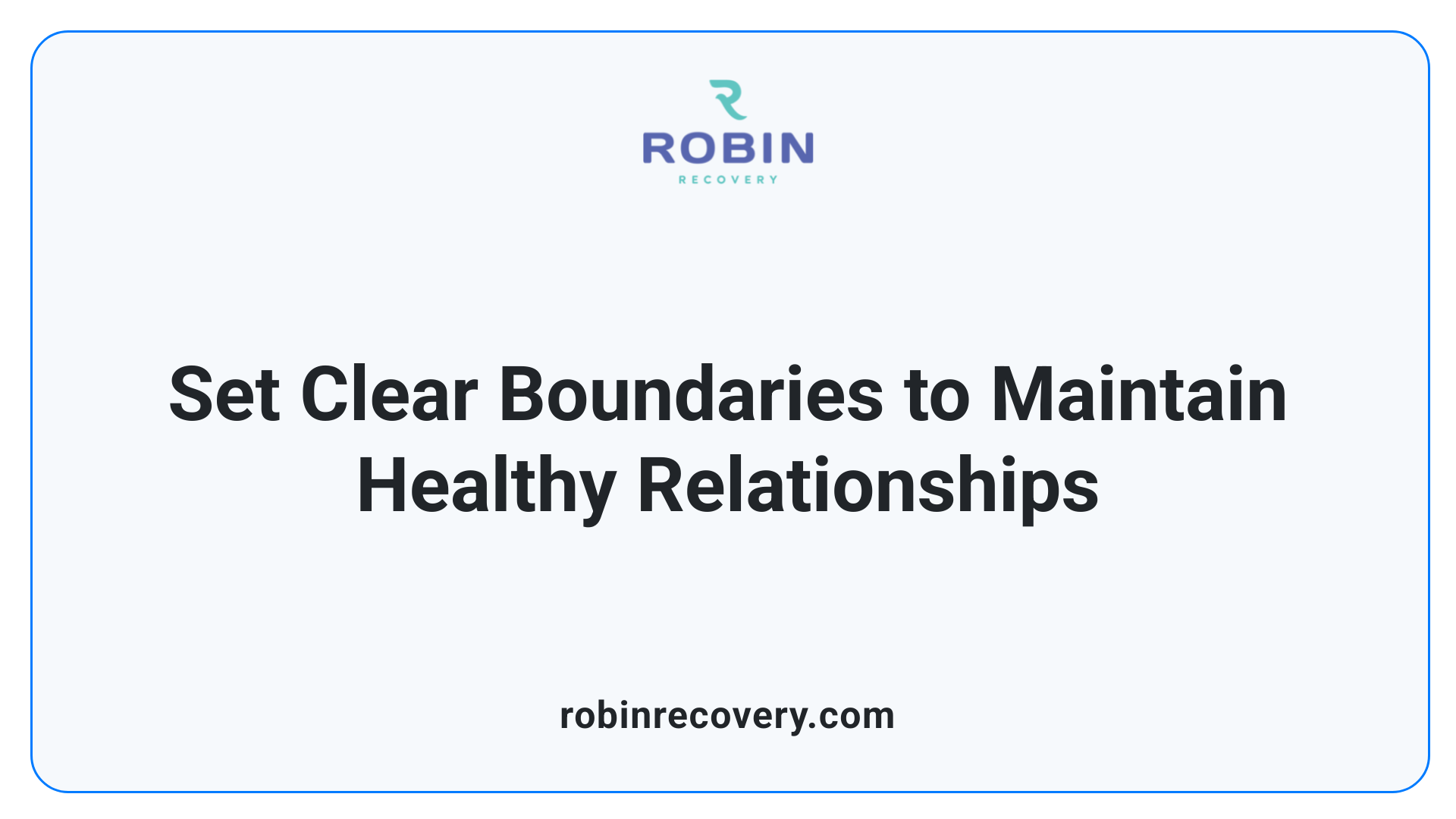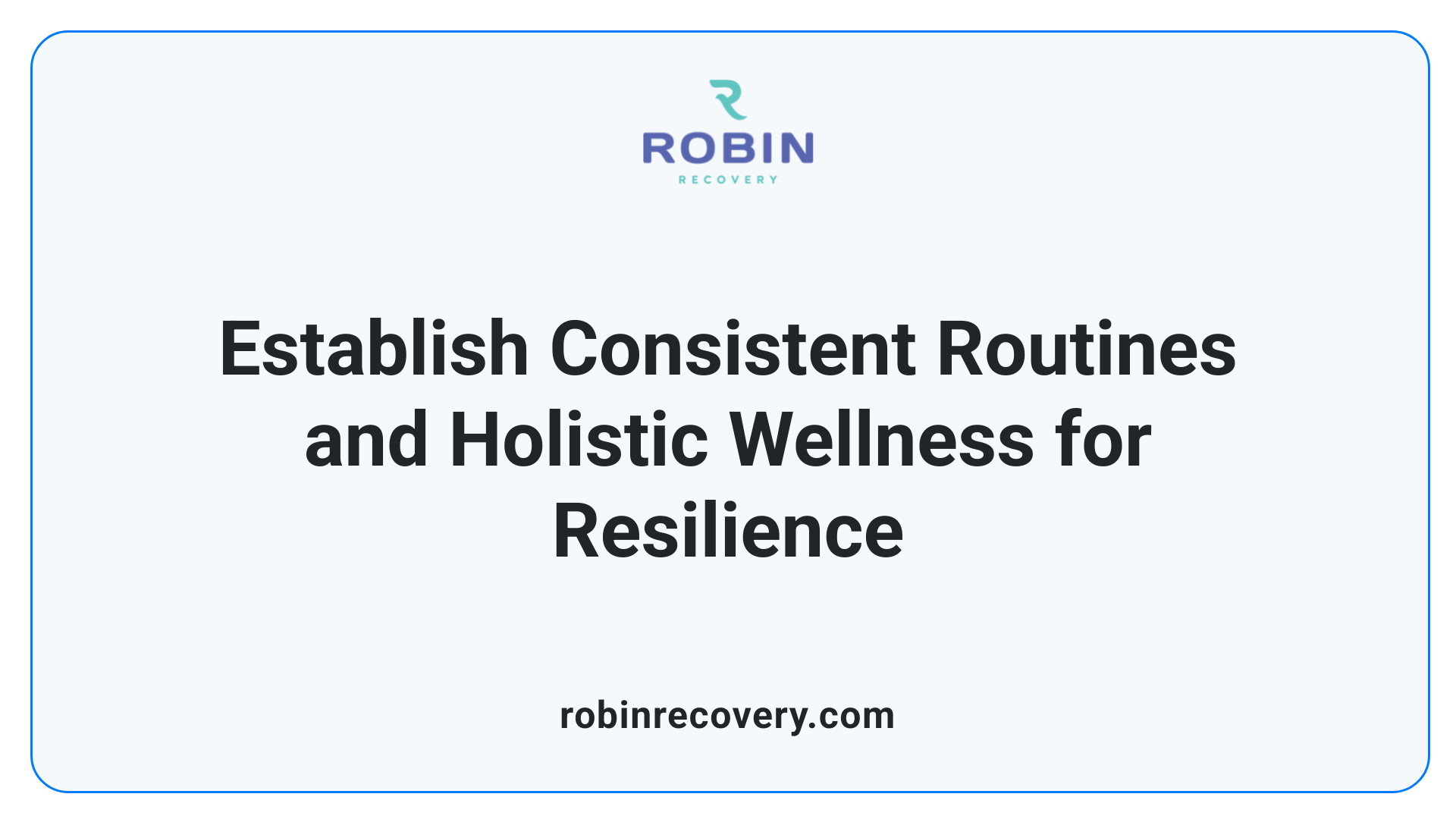How to Encourage a Loved One to Stay Engaged in Therapy and Recovery

Understanding the Foundations of Support in Addiction Recovery
Supporting a loved one through addiction recovery is a complex yet crucial endeavor. It involves not just encouraging continued participation in therapy but also creating an environment of empathy, boundaries, and practical assistance. With the right approaches, family members and friends can significantly influence the recovery process, enhancing motivation and reducing the risk of relapse. This article explores effective strategies, communication techniques, and supportive measures to motivate a loved one to stay engaged in therapy and sustain their recovery journey.
Building Trust and Effective Communication

What communication techniques can help in discussing recovery and therapy with a loved one?
Supporting a loved one in recovery requires open and effective communication. One of the most important strategies is practicing active listening. This involves truly paying attention to what the person is saying without interrupting, showing genuine interest through body language, and providing feedback to confirm understanding.
Empathy plays a central role. Demonstrating understanding and compassion helps your loved one feel safe and accepted. Using 'I' statements, such as "I feel concerned when..." instead of accusatory language, reduces defensiveness and encourages honest dialogue.
Non-judgmental language is crucial. Avoid blaming or shaming, and instead focus on supporting and encouraging. This creates a respectful environment where your loved one feels comfortable sharing their struggles and progress.
Setting boundaries in communication helps maintain a respectful and supportive relationship. Clearly expressing what topics or behaviors are acceptable prevents misunderstandings and emotional distress. Collaborating on recovery plans, including relapse prevention strategies, empowers the individual and reinforces your role as a supportive partner in their journey.
Maintaining good eye contact, observing nonverbal cues, and being patient can help deepen connection and understanding. It's also important to choose appropriate times and private settings for these conversations to ensure your loved one feels safe and not overwhelmed.
Overall, the aim is to foster an open, honest, and respectful dialogue that nurtures trust and helps your loved one feel supported in their recovery.
How do boundaries influence a healthy support system?
Healthy boundaries are essential to sustain your well-being and promote responsibility in your loved one’s recovery. Boundaries protect you from burnout and enable you to offer consistent, effective support.
Setting clear boundaries involves communicating what behaviors you will and will not accept. For example, not tolerating lying or substance use around you, or refusing to lend money that could enable harmful habits. These limits help maintain emotional safety and reinforce accountability.
Strategies for boundary setting include being consistent, prioritizing your mental health, and engaging in honest conversations about needs and limits. It’s helpful to seek guidance from professionals if you’re unsure how to establish boundaries.
Encouraging your loved one to take ownership of their recovery while respecting your limits helps foster a balanced relationship. When boundaries are respected, it promotes healthier interactions and prevents codependency.
In summary, boundaries serve as a foundation for sustainable support, ensuring both your safety and the individual’s growth.
How can families collaborate on recovery plans?
Effective recovery support often involves working together. Collaborating on recovery plans includes discussing goals, identifying triggers, and agreeing on strategies for relapse prevention.
Encourage your loved one to share their treatment goals and personal motivations for recovery. Your role is to listen, offer support, and help develop realistic, achievable objectives.
Jointly creating a plan allows both parties to stay aligned and understand their roles. This can include scheduled therapy sessions, participation in support groups, and lifestyle changes like healthy routines and stress management.
Open communication and continuous check-ins help adapt the plan as needed, addressing challenges proactively. Respecting your loved one’s autonomy while providing encouragement and accountability fosters trust.
By working collaboratively, families can build a supportive environment that reinforces commitment to recovery and demonstrates your belief in their strength and resilience.
Recognizing When Extra Support is Needed
What signs indicate that a loved one needs additional support in therapy?
Supporting a loved one through recovery involves keen observation and recognizing when their needs extend beyond current treatment strategies. Persistent emotional distress is a primary indicator; if your loved one continues to show signs of deep sadness, anxiety, or hopelessness despite ongoing therapy, it suggests they might benefit from enhanced support.
Changes in behavior are also telling. Noticeable withdrawal from social activities, difficulty maintaining relationships, or deteriorating daily routines signal that the person may be struggling more than expected. Unhealthy coping mechanisms, such as increased substance use or reckless behaviors, are red flags that additional intervention could be necessary.
Signs of relapse or setbacks further highlight the need for extra help. If your loved one begins to relapse into old habits or shows signs of regression, it’s crucial to address these early with professional support.
In terms of mental health warning signs, be alert to fluctuations in mood, thoughts of self-harm or suicide, and feelings of intense despair. Physical symptoms like disturbed sleep, loss of appetite, or fatigue can also reflect worsening mental health.
Early identification of these signs can significantly improve the trajectory of recovery. When you notice ongoing distress, behavioral shifts, or risk factors like suicidal ideation, seeking immediate additional support—possibly involving peer groups, different therapy modalities, or medication adjustments—is vital to help your loved one regain stability and continue progressing toward wellness.
Supporting Through Practical and Emotional Measures

What are the do's and don'ts of supporting someone through addiction recovery?
Supporting a loved one in recovery from addiction is a delicate balance that involves emotional encouragement, practical help, and setting appropriate boundaries. It is essential to approach this process with patience, empathy, and a non-judgmental attitude.
One of the most important do's is educating yourself about addiction as a disease, which involves understanding it from physical, emotional, and psychological perspectives. This knowledge can foster compassion and patience, helping you better support your loved one through their journey.
Encouragement plays a significant role in recovery. Simple affirmations such as “I’m proud of you” or celebrating small milestones can motivate ongoing effort. Encouraging professional help like therapy, medication-assisted treatment, and support groups ensures they have access to essential resources.
Practical assistance, such as helping with daily tasks, transportation to appointments, or creating a nurturing, substance-free environment, can reduce external stressors and promote stability.
On the flip side, avoid enabling behaviors—like covering up their mistakes, offering money that might go toward substance use, or engaging in codependent relationships. These actions can hinder progress and possibly exacerbate the addiction.
Setting healthy boundaries is crucial. Decide what behaviors you will tolerate, such as dishonesty or manipulation, and clearly communicate your limits. This protects your well-being and encourages accountability.
Recognize the signs of relapse or setbacks and approach them supportively, viewing these moments as part of the recovery process, rather than failures.
Supporting your loved one also means taking care of your own mental health. Utilizing support groups like Al-Anon, seeking counseling, or engaging in self-care activities ensures you remain strong and effective in your role.
In summary, supporting someone through recovery involves listening actively, offering unconditional love, encouraging professional help, and maintaining healthy boundaries. Balancing compassion with accountability creates a foundation for genuine recovery, fostering hope and resilience for your loved one.
Motivating Ongoing Engagement and Long-Term Commitment
How can I motivate a loved one to stay engaged in therapy and recovery?
Maintaining motivation in recovery is essential for long-term success. To encourage consistent participation, build a foundation of trust and understanding. Use therapeutic techniques such as motivational interviewing, which explores ambivalence and helps the individual discover their own reasons for change.
Collaborative goal setting plays a crucial role. Work together to set realistic, achievable goals that resonate with your loved one’s personal values and aspirations. Celebrating small victories along the way helps boost their confidence and reinforces their commitment.
Supporting their belief in their ability to succeed, known as self-efficacy, is vital. Offer positive feedback when they make progress, and recognize efforts even if setbacks occur. Provide clear explanations for why certain tasks or routines are necessary, making the process feel more manageable and meaningful.
Encouraging open dialogue is also key. Let your loved one express concerns or hesitations without judgment, and involve them in decision-making about their treatment options. This sense of control can motivate them to stay committed.
Creating a nurturing environment enhances motivation. Show consistent emotional support, surround them with positive influences, and help them track their progress. Using tools like progress charts or rewards can provide tangible milestones that promote ongoing engagement.
In summary, motivation is fostered through empathy, collaboration, and celebrating every step forward. These strategies not only keep your loved one engaged in therapy but also empower them to take ownership of their recovery journey.
Creating a Supportive Environment for Sustained Recovery

How can I create a supportive environment to foster my loved one's recovery efforts?
Supporting a loved one's recovery journey involves several strategic steps to create an atmosphere conducive to healing. The first priority is establishing a sober home environment. This means removing all substances, including alcohol and drugs, and managing triggers that could lead to relapse. A clean, safe space minimizes temptations and helps the individual focus on their recovery without environmental stressors.
Maintaining consistent, healthy routines plays a significant role. Setting regular times for sleep, nutritious meals, and exercise provides stability and predictability, which are essential for emotional and physical resilience. Incorporating mindfulness practices or relaxation activities can also reduce stress and improve overall well-being.
Adopting a holistic wellness approach involves attention to mental health, physical health, and emotional support. Encouraging activities like physical activity, proper nutrition, and stress management techniques such as meditation or yoga can strengthen the individual's capacity to cope with challenges.
Professional support is vital. Facilitating access to therapy, counseling, or medication-assisted treatment addresses roots of addiction and co-occurring disorders. Connecting your loved one with support groups like NA or local recovery networks not only offers community but also reinforces accountability.
Family involvement is fundamental. Educating yourself and other family members about addiction fosters empathy and patience. Setting and respecting clear boundaries ensures mutual respect and prevents enabling behaviors. Regular family counseling sessions can improve communication, resolve conflicts, and strengthen relationships.
Combining these elements—an environment free of substances, structured routines, holistic wellness, professional intervention, and active family participation—creates a comprehensive support system. This approach addresses individual needs, promotes resilience, and lays the foundation for sustained recovery.
Overall, fostering a recovery-supportive environment is about safety, understanding, and consistent encouragement. When your home and lifestyle reflect these principles, you significantly enhance your loved one's chances for long-term healing and well-being.
Towards a Compassionate and Effective Support System
Supporting a loved one in recovery requires a combination of emotional understanding, practical assistance, clear communication, and strategic boundaries. Building trust through empathetic dialogue and celebrating milestones can boost motivation, while recognizing signs of additional support needs allows for early intervention. Creating a safe, substance-free environment complemented by healthy routines and peer connections establishes a foundation for sustained progress. Remember, self-care for supporters is equally essential for long-term success. By fostering an environment grounded in compassion, respect, and proactive engagement, families and friends can profoundly influence their loved ones' journey toward lasting sobriety and well-being.
References
- How to Support Your Loved One in Recovery | Pyramid Healthcare NC
- 7 Do's and Don'ts for Supporting a Loved One in Recovery
- Supporting Loved Ones in Recovery: How to Be a Pillar of Strength
- How to Support a Loved One in Rehab: Walking With Them Toward ...
- Do's and Don'ts for When a Loved One Comes Home From Rehab
- How to Support a Loved One's Mental Health - The Recovery Village
- Understanding & Supporting a Loved One's Recovery
- How to Support a Loved One in Addiction Recovery: Do's and Don'ts
